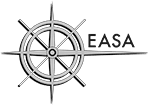Early Assessment and Support Alliance
Family Involvement
EASA
Treatment and Supporting Recovery
Families, generally, should be in regular communication with healthcare professionals. This means that family members should:
Be in Regular Communication
- Provide information in the initial assessment process
- Meet periodically with doctors and counselors
- Be aware of the person’s diagnosis, and be involved in developing the treatment plan
- Play a role in treatment, such as helping to remind the person about taking medicine, monitoring and reporting symptoms, and supporting the person in their goals.
A Few Pointers:
- It is important to find a professional who understands the importance of the family role is, and who wants to talk with you.
- Try to be concise and specific in your communication with professionals.
- When communicating with professionals, it is helpful to write things down
- It’s helpful to review written records and make corrections where you see errors.
Be Supportive of The Treatment
- Be patient, prioritize, and encourage progress one step at a time.
- Use the following question about whether your involvement is helping or hindering
- Pay attention to whether people are getting their medicine as prescribed.
- You may need to work more closely with other professionals to let others take on caregiving roles.
- Maintain a positive, hopeful attitude.
- Continue to involve your loved one socially with friends and family.
Advocate for Change
If you are unhappy with any aspect of the services you are receiving, it is important to talk directly to the person who is most involved, whether It’s your counselor, doctor, or someone else. You can also call a supervisor, and if you’re part of EASA, you can call the EASA Program Coordinator.
Try to be specific about what you need or would want. You always have the right to change case manager or doctor, although there may be limitations of availability within agencies.
EASA
For Families…
Click the “For Families” tab in the menu to explore more resources!
